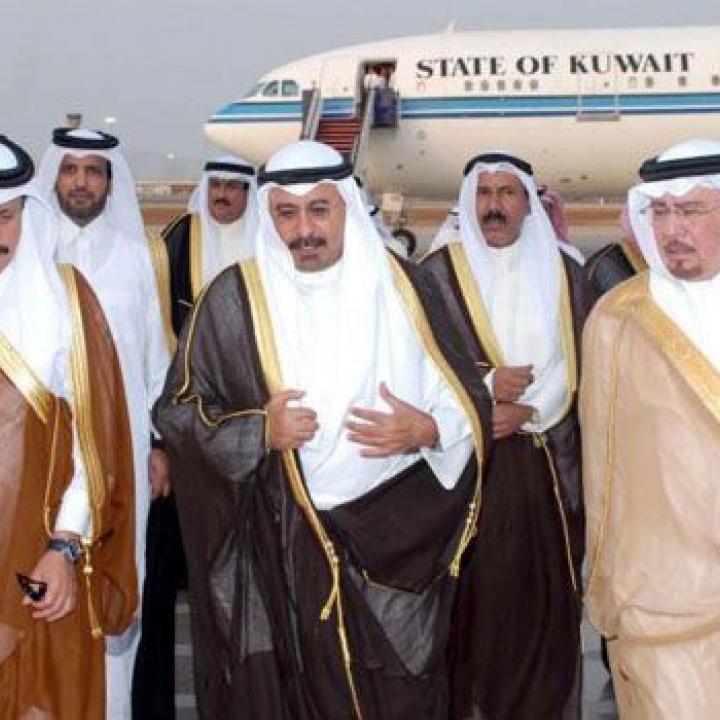

Saudi Arabia, the UAE, and Kuwait's new financial aid to Cairo should be used to facilitate a political transition and stabilize Egypt's fragile economy.
Yesterday, Saudi Arabia announced a $5 billion aid package for Egypt that includes a $1 billion cash grant, $2 billion worth of petroleum products and natural gas, and $2 billion as a deposit in the Central Bank of Egypt, free of normal financing expenses. The same day, the UAE offered a grant of $1 billion and an interest-free loan of $2 billion; the announcement came shortly after the governor of Egypt's Central Bank visited the Emirates. And today, Kuwait pledged an aid package worth $4 billion.
Riyadh and Abu Dhabi's generosity shows their appreciation for Egypt's dire financial circumstances, but it also reflects their delight that Muhammad Morsi's Muslim Brotherhood administration has been overthrown. The Brotherhood is anathema to most of the hydrocarbon-rich Gulf states because it threatens their hereditary, feudal styles of government. On July 2, a UAE court announced prison terms for sixty-eight citizens who had been linked to the local Brotherhood branch and charged with sedition. Kuwait's attitude toward the Brotherhood is more nuanced: members of the group have held seats in the national assembly but are an irritant to the government.
For Washington, the new financial support is both welcome and worrisome. Egypt is vital to U.S. regional interests for a range of reasons, including its control of the strategic Suez Canal and its peace agreement with Israel. But the White House is still under congressional pressure to call the army's action against Morsi a coup -- a move that would likely require Washington to cut off its $1.3 billion annual aid package to the Egyptian military. Moreover, Saudi Arabia and the UAE's definitions of political progress probably differ from that of the Obama administration, especially over whether the Brotherhood should be allowed to participate in new elections.
Another complicating factor is the role of Qatar, whose government does not share Riyadh and Abu Dhabi's fear of the Brotherhood and infuriated both neighbors by supporting the Morsi administration with generous grants and loans totaling around $8 billion. It is not clear whether Doha will continue this assistance; President Obama likely broached the subject during his telephone conversation yesterday with Emir Tamim bin Hamad al-Thani, who took control of Qatar last month after his father abdicated.
Doha's generosity during the Morsi era was seen as a tactical ploy to undercut its larger neighbor and regional rival, Saudi Arabia. The two countries seem to be engaged in a similar diplomatic competition in Syria, where each is funding and arming rival groups of rebels. Given these and other factors, Riyadh, the UAE, and Kuwait are likely averse to working with Qatar on Egypt -- despite the fact that all four are members of the Gulf Cooperation Council, which pledged to support a "secure and stable transition in Egypt" during last year's U.S.-GCC Strategic Cooperation Forum.
For Washington, the priority should be to ensure delivery of Gulf funds and then help Cairo use the money wisely. A $1 billion loan from Western creditors needs to be paid back next month; foreign exchange coverage for imports has fallen perilously close to three-month's worth, a figure usually seen as a danger point. Meanwhile, high inflation and rising youth unemployment could escalate street unrest if left unchecked. Combining Saudi, Emirati, and Kuwaiti assistance with Qatari funds, U.S. aid, and contributions from others could help ease Egypt's economic challenges.
Simon Henderson is the Baker fellow and director of the Gulf and Energy Policy Program at The Washington Institute.



